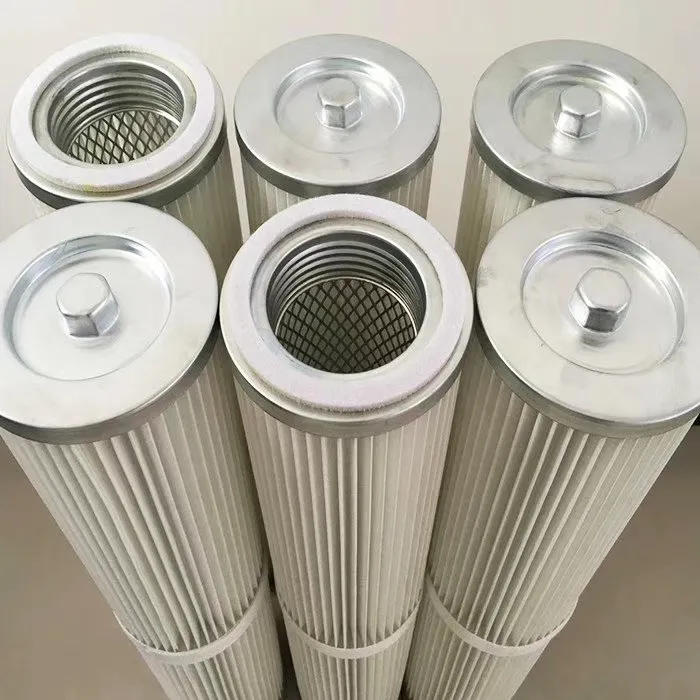 Tel:
+8615930870079
Tel:
+8615930870079
Tet . 11, 2024 17:35 Back to list
Efficient Dust Collector Systems with Advanced Filter Cartridge Technology
Understanding Filter Cartridge Dust Collectors A Comprehensive Overview
Filter cartridge dust collectors are essential in various industrial applications, designed to control air pollution and maintain a clean working environment. These systems capture and remove airborne dust and other particulates from industrial processes, ensuring compliance with health and environmental regulations. This article explores the significance, operation, advantages, and maintenance of filter cartridge dust collectors.
What is a Filter Cartridge Dust Collector?
At its core, a filter cartridge dust collector consists of a filtration system that utilizes cylindrical filter cartridges to capture particulates from the air. These cartridges are typically made from fabrics, synthetic materials, or fiberglass and are effective in removing dust, smoke, and other harmful particles from industrial exhaust streams. The basic components of a dust collector include the filter housing, filter cartridges, an airflow system, a cleaning mechanism, and a collection hopper for accumulated dust.
How Does it Work?
The operation of a filter cartridge dust collector begins with the suction of contaminated air through the inlet. As air flows through the filter cartridges, particulates are trapped on the surface or inside the filter media. Clean air is then released back into the atmosphere or recirculated into the workspace. This process not only improves air quality but also enhances the efficiency of machinery and equipment operating in dusty environments.
To maintain optimal performance, filter cartridge dust collectors incorporate a cleaning mechanism, often utilizing pulses of compressed air. This process dislodges the accumulated dust from the cartridges, allowing it to be collected in the hopper while maintaining the efficiency of the filtration process.
Advantages of Filter Cartridge Dust Collectors
1. Efficiency Filter cartridge dust collectors are known for their high filtration efficiency, capable of capturing particles as small as 1 micron. This makes them suitable for various applications, including woodworking, metalworking, pharmaceutical, and food production.
filter cartridge dust collector

2. Compact Design Their compact design allows for easy installation in facilities with limited space. Unlike traditional baghouse collectors, cartridge collectors can fit into smaller areas while still providing effective dust control.
3. Lower Operational Costs Due to their efficient design and low energy requirements, filter cartridge dust collectors often have lower operational costs compared to other dust collection systems. They also require less frequent filter replacement, further reducing maintenance costs.
4. Flexible Configuration These systems can be configured to suit specific operational needs. Whether in a standalone setup or integrated into an existing production line, filter cartridge dust collectors can be customized to accommodate various dust collection challenges.
5. Regulatory Compliance With increasing regulations on air quality, investing in a filter cartridge dust collector helps businesses comply with environmental standards, thereby protecting both employee health and the environment.
Maintenance and Best Practices
Although filter cartridge dust collectors are low-maintenance, regular checks and upkeep are essential for prolonging their lifespan and ensuring optimum performance. Here are some best practices
- Regular Inspection Periodically check the filter cartridges for wear and tear. Replace or clean them as needed to maintain efficiency. - Monitor Airflow Keep an eye on the airflow rates. A drop in airflow could indicate a clogged filter or malfunction within the system. - Dust Disposal Ensure that the collected dust is disposed of properly, adhering to local regulations regarding hazardous waste.
In conclusion, filter cartridge dust collectors are vital for maintaining clean air in industrial settings. Their efficiency, compact design, and flexibility make them an attractive option for various industries. By understanding their operation, benefits, and maintenance needs, businesses can ensure a safer and healthier work environment while promoting compliance with environmental standards. Investing in a reliable dust collection system is not just a regulatory necessity; it is also a commitment to the well-being of employees and sustainability for future generations.
-
Types and Applications of Air Filtration CartridgesNewsJul.28,2025
-
The Role of Gas Turbine FiltersNewsJul.28,2025
-
Mastering Air Filter Cartridge UseNewsJul.28,2025
-
Advanced Turbine Filters for Modern Gas TurbinesNewsJul.28,2025
-
Cellulose Air Filter Cartridge Advantages in Dust FiltrationNewsJul.28,2025
-
Cellulose Filters for Air Particle ReductionNewsJul.28,2025

 Email:
Email:





